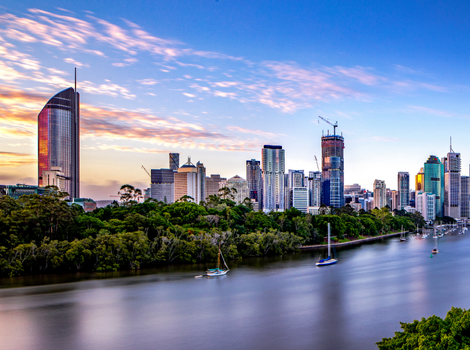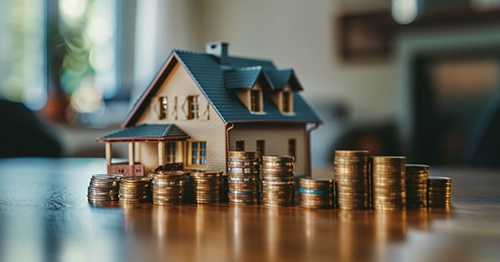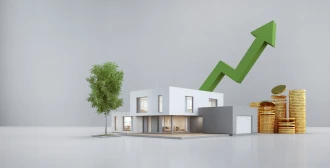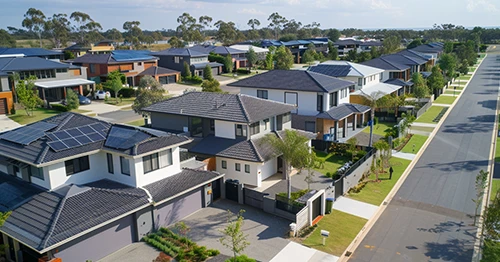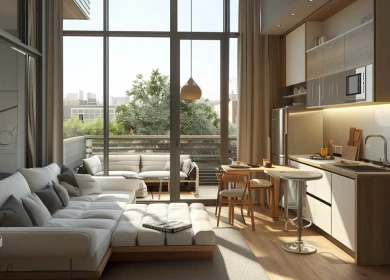Updated: 29 May, 2025
The New South Wales government is proposing to abolish stamp duty as part of its 2020-21 budget announcement on 17 November 2020.
Instead of paying stamp duty upfront, it would be replaced by an annual land tax.
Stamp duty is a government tax paid when you buy a property. First home buyers in NSW are exempt from paying it if they’re buying a property less than $800,000.
Why did NSW propose to axe stamp duty?
Stamp duty remains one of the biggest barriers when it comes to buying property due to the large costs associated with it.
NSW Treasurer Dominic Perrottet said in his budget speech:
“Stamp duty is a relic from a bygone era when you picked one career, started a family, bought a home and basically settled in for life.
It adds tens of thousands of dollars to the cost of the biggest financial commitment most people ever make. If you want to move, change jobs, or switch careers, upsize or downsize to match your family size, stamp duty can be the spanner in the works.
It is holding our economy back at a time we need to be going full throttle.“
Stamp duty is one of the largest revenue sources for the NSW government, the proposed changes will affect revenue in the short term. However, it will be recovered over the long term through small annual property tax charges.
The proposed changes could inject $11 billion over four years into NSW’s economy, which is currently experiencing a downturn due to the pandemic.
What are the proposed changes for NSW stamp duty?
The NSW government is proposing the following changes to stamp duty, which might come into effect in 2021.
- Charging an annual tax on land value consisting of a fixed amount and a rate applied to the unimproved value of the land.
- Property buyers will be given an option to either pay stamp duty upfront or pay a smaller annual property tax.
- There will be no double taxation for people who’ve already bought the property and paid stamp duty.
- There will be price thresholds to restrict the number of properties that can opt-in to the property tax.
- The NSW government will monitor the rental market to protect tenants and check if landlords will pass on the property tax. If a landowner is facing financial difficulty, there will be hardships schemes in place.
- Abolish first home buyer stamp duty exemptions and concessions and instead provide a cash grant of up to $25,000.
- There will be no changes to the existing $10,000 first home owners grant in NSW.
How much property tax do I need to pay?
The NSW government has outlined what property tax rates could be used if the stamp duty reform moves forward.
Please note that the rates are not final and will be refined after public consultation.
| Property type | Currently liable to stamp duty? | Currently liable to land tax? | Potential property tax rate |
|---|---|---|---|
| Owner-occupied residential property | Yes | No | $500 + 0.3% of unimproved land value |
| Investment residential property | Yes | Yes | $1,500 + 1.0% of unimproved land value |
| Primary production land (farmland) | Yes | No | $0 + 0.3% of unimproved land value |
| Commercial property | Yes | Yes | $0 + 2.6% of unimproved land value |
The property tax will be calculated on the unimproved value of the land i.e. the value of the land only, excluding the value of any dwellings and any improvements made to the property.
As of 2020, the average unimproved land value for residential property in NSW is around $437,500. Using the table, the property tax rates would be around $1,812.
For metropolitan NSW, the average residential land value is around $630,400 and the corresponding tax rate would be $2,391.
A home owner will pay the property tax annually as long as he/she owns the property.
For example, if a property buyer buys a property valued at $860,967 (this is the median dwelling value in Sydney as of November 2020 according to CoreLogic), the stamp duty would be $34,080.
Using the property tax figure for metropolitan NSW, in about 15 years time, the buyer would pay more in property tax than stamp duty.
How will the stamp duty change benefit home buyers?
Home ownership might be more achievable in NSW as stamp duty is one of the biggest upfront barries when it comes to buying a home.
Therefore, if this upfront cost is eliminated, you can buy a home that suits your lifestyle, instead of adjusting your lifestyle to buy a home.
Also, the money saved could be used for other investment opportunities or to save a deposit for your home.
The NSW government is currently consulting with the community and stakeholders regarding the change in stamp duty, and might only come into effect in 2021.
Should I wait to buy?
We don’t know when the changes will be implemented, however, we do know the consultation phase does not end until March 2021.
- Property prices are still increasing, so if you wait, you may end up paying more.
- We don’t know how lenders will react – are they going to add the new tax to living expenses, which means some customers may not be able to borrow as much.
- The change may drive more borrowers into the market (lower barrier to entry) and drive up prices further.
- The cost is not being abolished altogether. The upfront costs if the customer chooses, will be paid annually, so the cost is still there.
Are you buying a home in NSW?
If you’re thinking of buying your first home, our first home buyer’s guide is a great resource to start with.
Our mortgage brokers are here to help and are experts at helping first home buyers.
Call us on 1300 889 743 or fill in our online assessment form for free.
